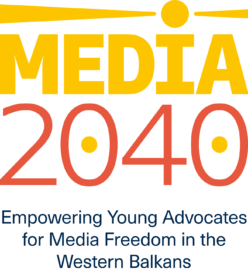MEDIA-POLITICS RELATIONS
To what extent the media system parallels the political system? Which media are dominant – liberal or conservative? How does the media behave during the elections?
- Media parallels political system in the entire WB, with no observable shifts with changes of the government. Media highly politicized with politics being the key influence in media system
- It is hard to assess the ideological leanings of the media in WB, since it is mostly ethnicity and/or party politics that affects the media work.
- Overall, in WB region media do not perform their role during elections, rather they provide biased information to the citizens. In SRB, ALB and MKD media system there are grave examples of media bias during the election. In some countries (BIH, MNE) situation is better on some public service media during the campaign periods.
UNDUE INFLUENCE
Is there an undue influence of the state and politics on the media content? What are the main channels of influence?
- In the whole region there are multiple instances of undue influence of politics and state on media content.
- By allocating funds to media, through state advertising, subsides or other more opaque means, politics is exerting strong influence on media in ALB, BIH, KOS and SRB. In MKD there is a suspicion of direct financing of journalists, while in MNE journalism often serves as a spring board to political career.
- Influences achieved through ownership structures (i.e. media owners connected to political parties) are observed in ALB, BIH and SRB.
- Development of legislation that favour the media supportive of government is found in ALB and SRB, and to a lesser degree in MKD, MNE and BIH.
- Politicians across the region are selectively responding to media queries for interviews.
- Broadcasting regulator is under political influence in SRB and ALB, while it achieved relative independence in other media systems.
- Public service media is under political influence in ALB, SRB, KOS and MKD, and in parts of BIH.
FREEDOM OF SPEECH
Are the sufficient guarantees to the freedom of speech (i.e. libel laws)? To what extent are state institutions transparent and open to media? Is there an administrative or judicial pressure on the media? Are there state and politics run campaigns against media and journalists?
- In all WB countries freedom of speech is guaranteed by constitution and laws. Defamation is considered a criminal offence in ALB, it is recently introduced in parts of BIH (Republic of Srpska) with announcements that the law “on foreign agents” will follow, and there were attempts to introduce it in KOS but they failed.
- State institutions are for the most part closed and lack full transparency, with especially challenging situation in ALB, KOS, MKD and SRB.
- Administrative and judicial pressure (e.g. SLAPPs, administrative harassment) is quite strong in ALB and SRB, and somewhat strong in KOS. In MKD and MNE there are no judicial and administrative pressures on the media. Across the region, inefficient judiciary is a problem for the media.
- Politician smearing the media is practice found in all WB countries, with the situation being especially very grave in ALB and SRB. Social media is frequently used for these purposes.
CITIZENS
POLARIZATION
To what extent are media audiences polarized?
- There is high degree of political polarization in ALB, MKD and SRB. The polarization affects choice of news sources and the trust in media.
- In BIH, KOS, MKD and MNE there is also strong polarization along ethnic lines and ethnicity (and entity) has impact on media consumption habits.
FREEDOM OF SPEECH
To what extent are digital spaces protected from political influence? Is there a regulation.
- In WB countries there is a lack of specific regulation related to digital media, common legislation on free speech applies. Attempts to introduce specific legislation, raised concerns that regulation will lead censorship (ALB, SRB).
- Digital spaces are fields of political influence. Namely, sock puppets and bot networks trying to influence public opinion exist in ALB, SRB, MKD and MNE, they are not so prominent in KOS.
EU DIMENSION
- Newly adopted European Media Freedom Act and recommendations based on the Act cover several segments pertaining to undue political influence on media: protection of editorial independence, no use of spyware against media, transparent state advertising, and protection of media content online
- Overall, through accession process the EU promotes depoliticization of media and occasionally notes and reacts to undue political influences.
Key takeaways about Politics and state.
